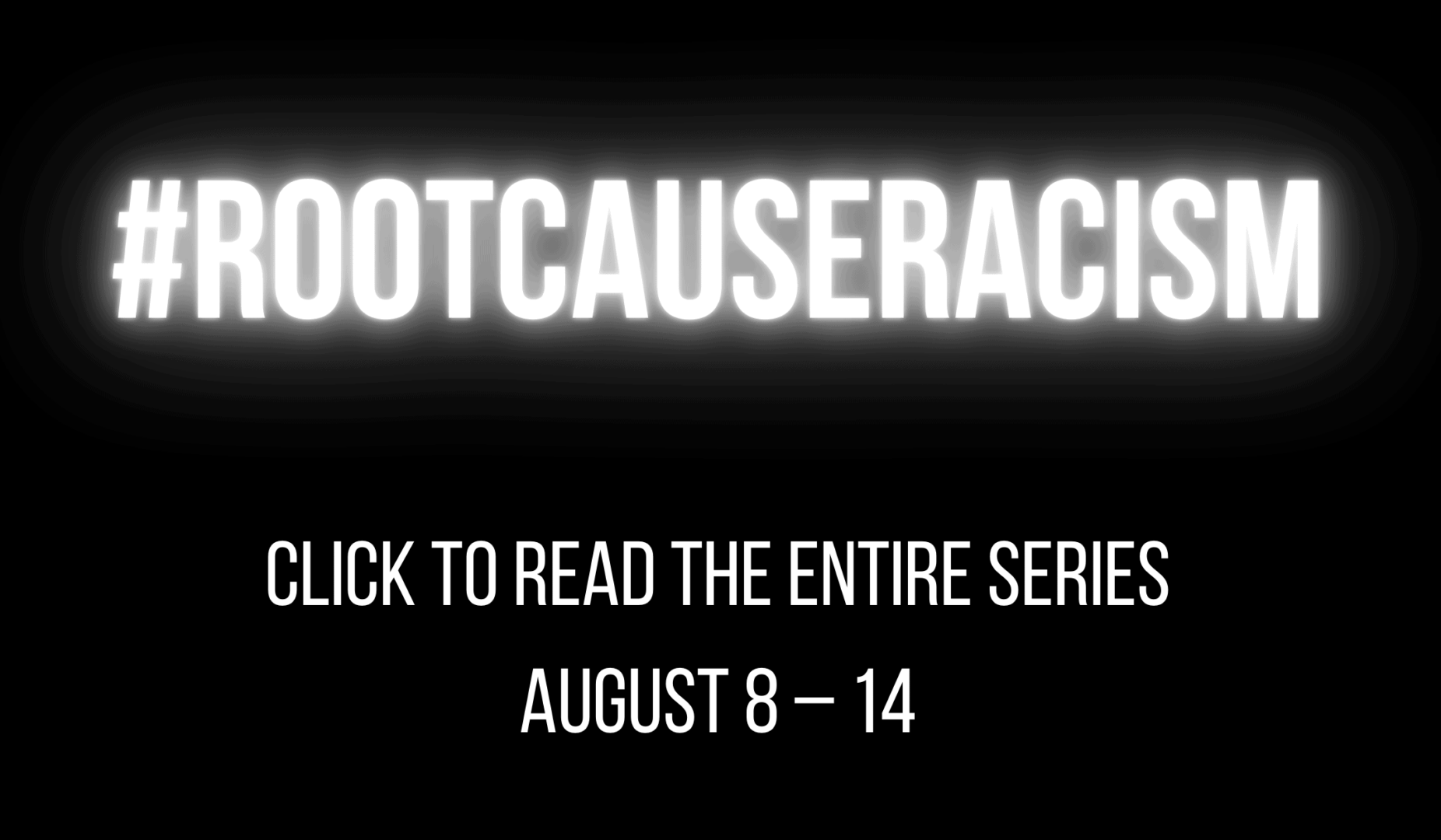
Police brutality against Black people and Black Lives Matter brought racism back to the global agenda. People protest on the streets across the world and corporations find their voice and state their commitment to Inclusion and Equity.
While it's important to be clear and make your voice heard, we shouldn't stop here. We should move beyond statements and towards tangible steps to create a better world for us and our children.
As Women in Lean, we want to do our part. We have all these ingenious Lean tools and techniques at hand and we know these are powerful to solve problems, to enable learning, and to move us forward towards our North Star.
With #RootCauseRacism, we started a project across industries and across the world to employ Lean techniques to help us, our colleagues, and our communities to move forward and put tangible next steps into action.
The Lean Coaching Kata
My area of expertise is Lean Kata Coaching. A kata is a pattern you practice to learn a skill and mindset. Through practice the pattern of a kata becomes second nature – done with little conscious attention – and readily available, like riding a bike.
The Lean Coaching Kata is a routine of 5 questions that supports people with a structured way of thinking and working through their problem. It challenges you to define your vision, your next target condition on your way, your actual condition, obstacles on your way, and one next step to overcome one obstacle.
The routine is completed with setting a date when you will have learnt more out of putting your next step into action. Then, it's time for reflection, defining your next step, and moving to the next learning cycle towards your goal.
Kata Coaching in Practice: Next steps towards an inclusive and equitable workplace
I like to do Kata Coaching with small groups. In the last months, I facilitated sessions on how to stay connected during COVID-19, on how to transfer lessons from lockdown to the next normal, and how to stay healthy and keep your boundaries when feeling overwhelmed and driven to be available 24/7.
From my experience, Kata coaching is very powerful to get us going. It's inspiring, it's encouraging, and it helps you to take a chance and try something new.
End of July, I was so excited to facilitate a Team Kata Coaching session with colleagues from my region of the world, which is Germany and Switzerland. I chose this local focus because we sometimes tend to think racism is only an issue elsewhere. That's not the case.
Our Kata Coaching team set out to derive tangible next steps towards an inclusive and equitable work environment. We structured our conversation around the following questions:
- What's our target condition for an inclusive and equitable work environment (with a focus on racism)?
- What's the actual condition now?
- What obstacles do we think are preventing us from reaching the target condition? Which one will each of us address now?
- What is our next step? What do we expect?
- When can we go and see what we have learnt from taking these first steps?

A first tangible output
We had a deeply insightful conversation where everyone learnt so much. We realized that dialogue — like this we just had or one-to-one may be one of the most impactful things that we could engage in.
Learning and inspiration and encouragement
During the Kata Coaching Session, we learnt so much about our different experiences, about our own ignorance, and about our fears.
What did we experience when we engaged into the broader conversation, when we chose to speak up — or when we chose not to? What issues and connotations we haven't been aware of? What are we afraid of, what is holding us back?
The whole group did a great job to inspire and to lend courage to each other. And that's for me what coaching is also about. It's not just about the challenge but also about nurture.
Our next steps
From our conversation and reflexion, we derived some next steps, including
- I will set up more opportunities for dialogue around racism and allyship.
- I will speak up against racist comments everytime. I will make it clear that these are unacceptable even if they may seem to be minor.
- I will suggest great resources to departments like global communications.
- I will set up and/or participate in focus groups on topics like allyship, and microaggressions.
- I will reach out to Black or POC colleagues and — with the genuine interest I have — ask how they are really doing without being intrusive.
- I will encourage my department, my organisation to take a stand against racism.
- I will speak up and explain racist connotations.
- I will try to engage in the conversation on racism even if I'm really angry and don't know what to say. I will not act on my anger but from a place of kindness. I will not fight people but prejudice, privilege, hate, and convenience.
- I will set up or encourage check-ins and engage with empathy when someone is sharing that they are not okay.
How we are moving forward
Everyone in our group selected one next step for ourselves. When we meet next time, we will discuss what we have learnt when putting our next steps into practice. What worked well and what didn't? And how do we want to move towards our next learning and improvement cycle?
How YOU can move forward
Please feel free to pick and choose one or more of our next steps towards an inclusive and equitable work environment, or define your own next step!
Many of the next steps we defined are quite straightforward to put into practice. However, it might be easier to work together with a peer to brainstorm ideas, lend some courage, and hold each other accountable.
This approach is for YOU!
The Team Kata Coaching approach is also for you! It's easy, it's hands on, it's connecting – and it's powerful!
Set up your own Team Kata Coaching session towards Equity and Inclusion!


Please scroll down (or click) to post a comment. Connect with me on LinkedIn.
Let’s build a culture of continuous improvement and psychological safety—together. If you're a leader aiming for lasting change (not just more projects), I help organizations:
- Engage people at all levels in sustainable improvement
- Shift from fear of mistakes to learning from them
- Apply Lean thinking in practical, people-centered ways
Interested in coaching or a keynote talk? Let’s talk.
Join me for a Lean Healthcare Accelerator Trip to Japan! Learn More










I appreciated step #8….say something, even when angry, out of kindness. Today someone on LinkedIn said something out of anger and I struggled with how to respond kindly. That’s a skill I could use help building. Thanks for sharing Sabrina!
Sabrina, thanks for your post. I admire the application of the Toyota Kata thought process to something as important as eliminating racism. What’s our challenge? Everybody is treated fairly. What is the next target condition and what are our next steps? I appreciate you laying out the steps you are going to take.
Comments are closed.